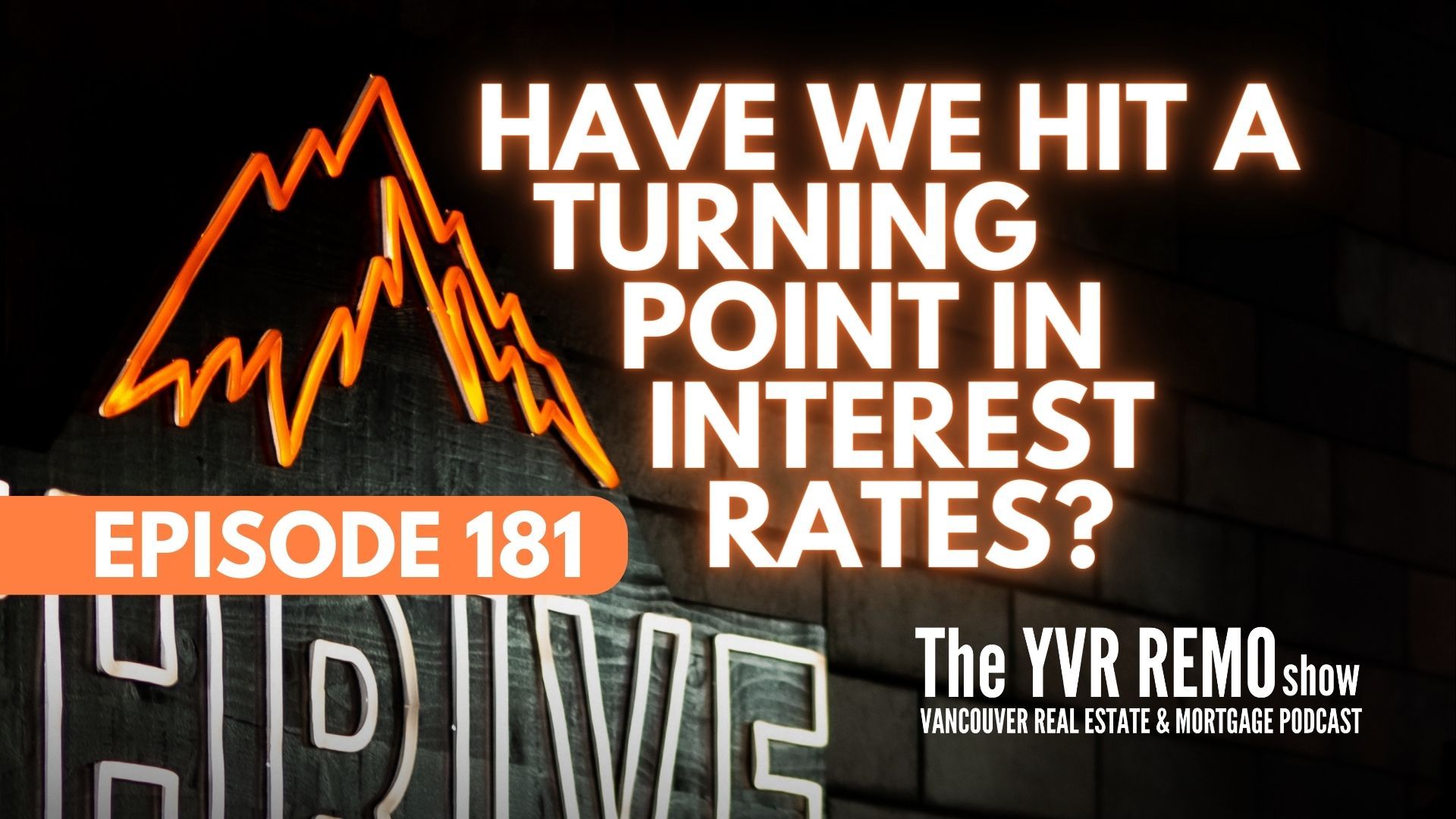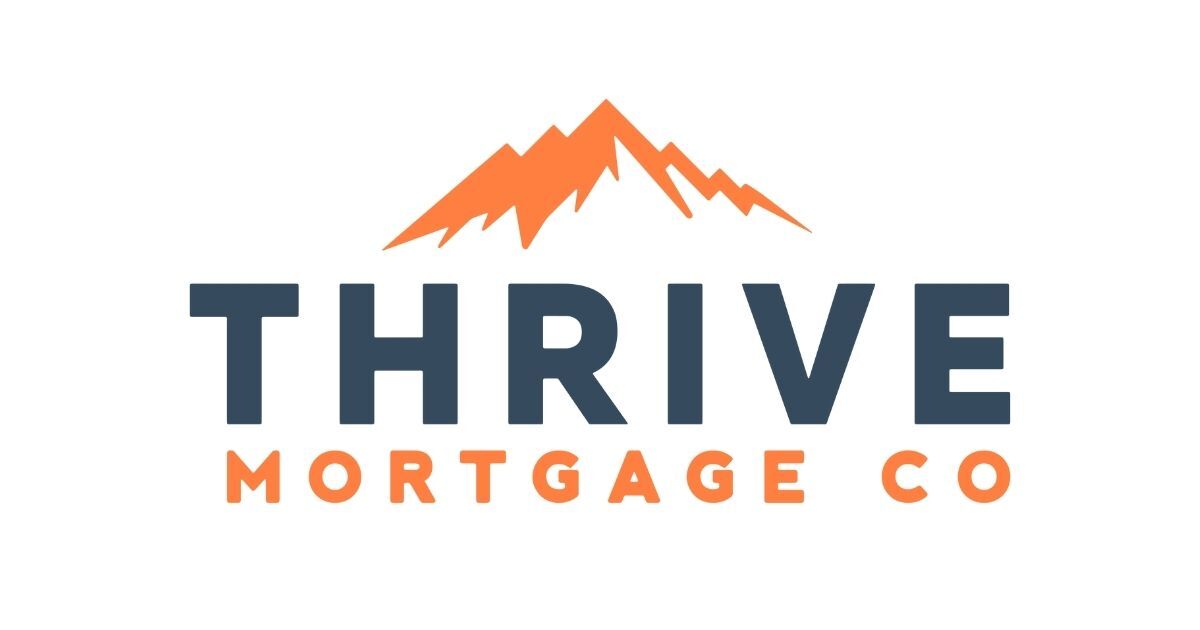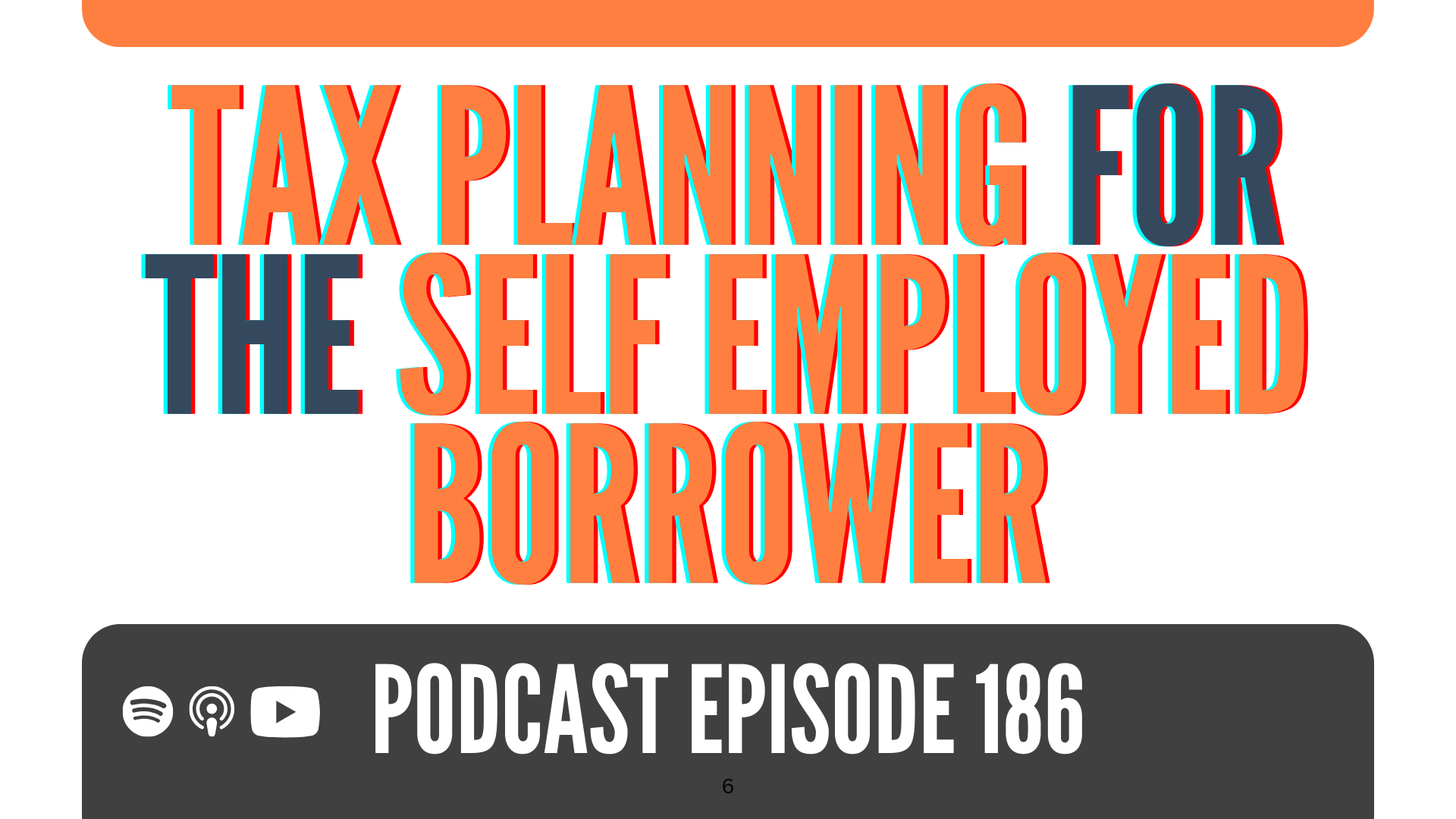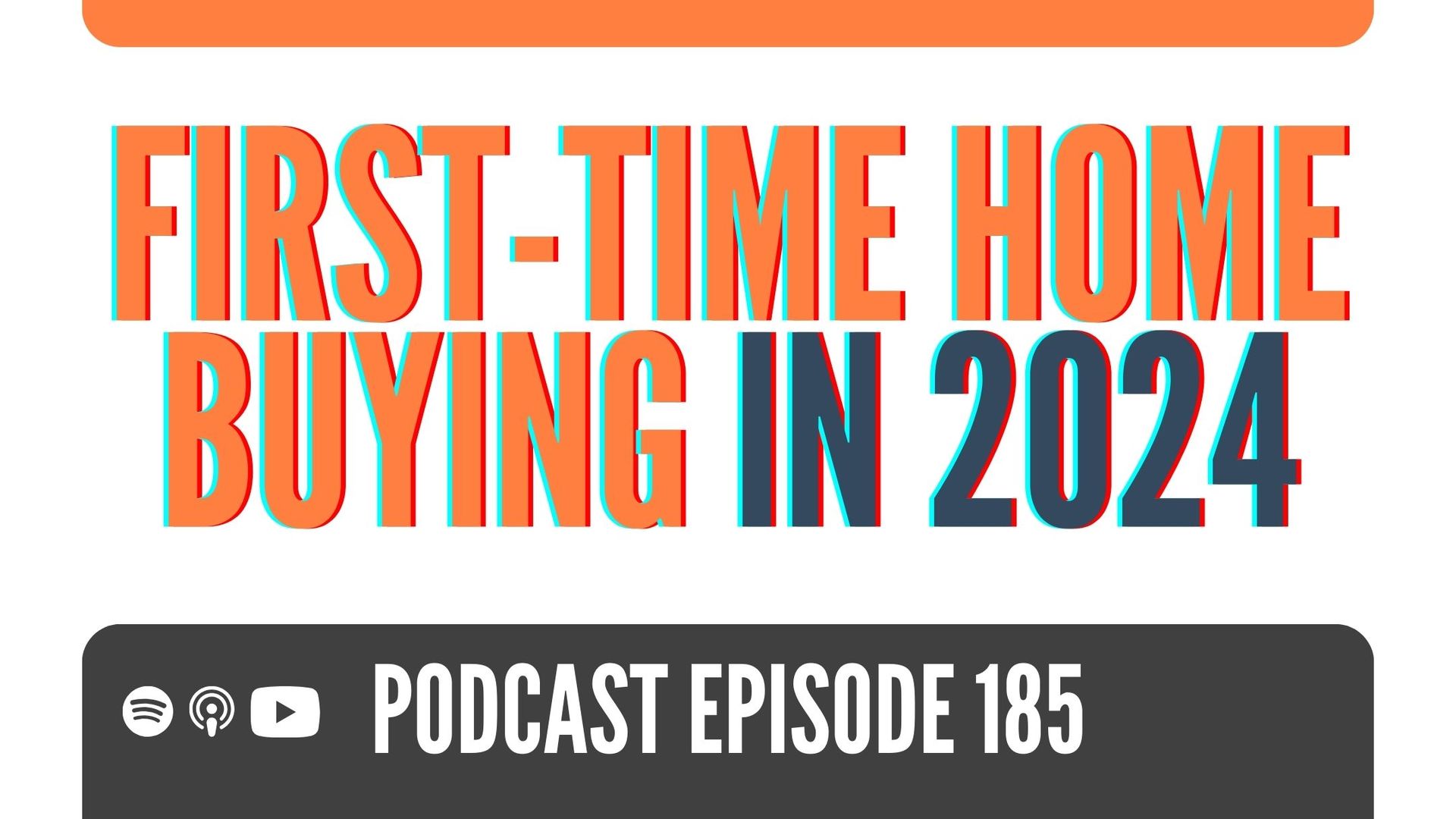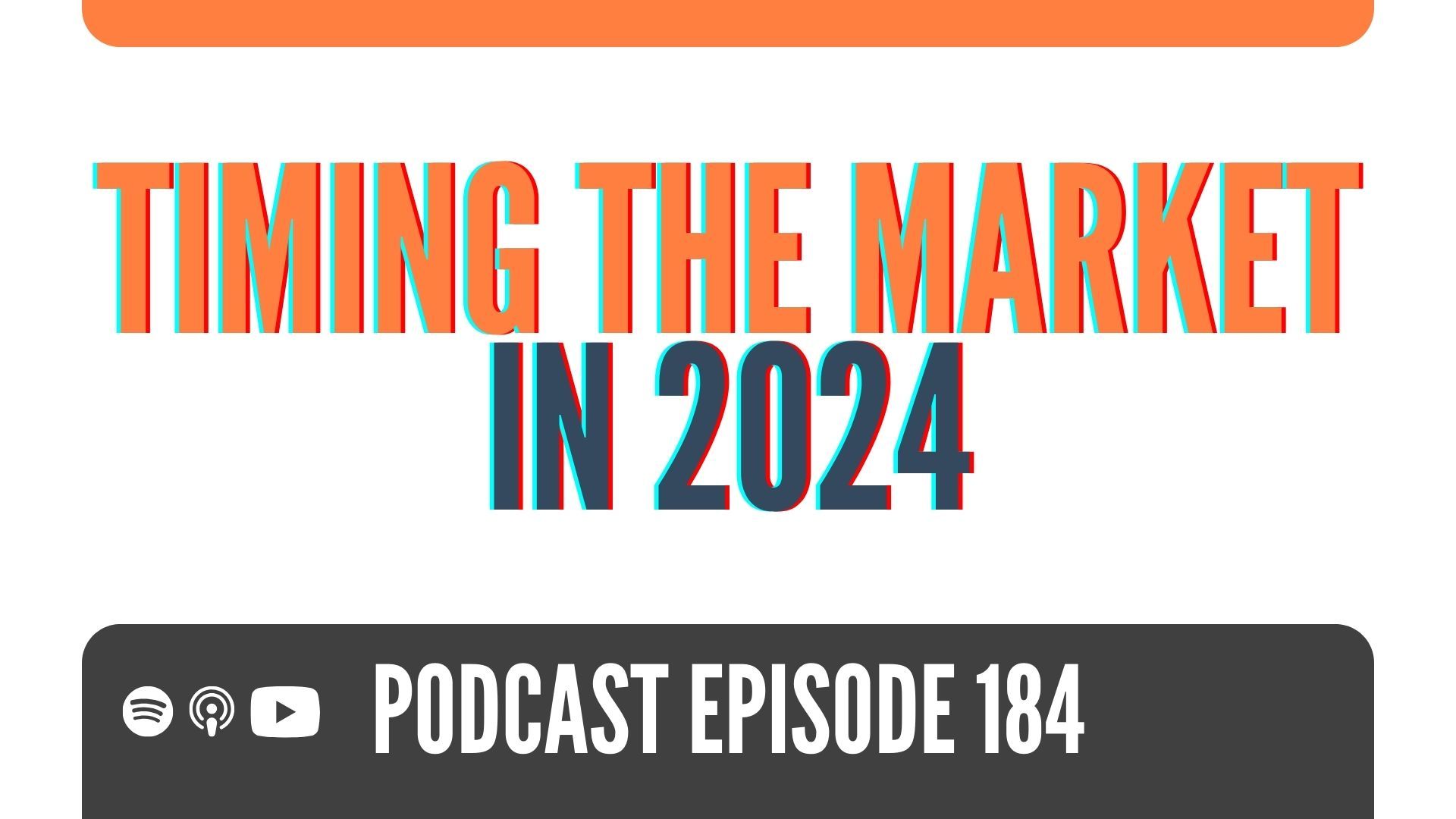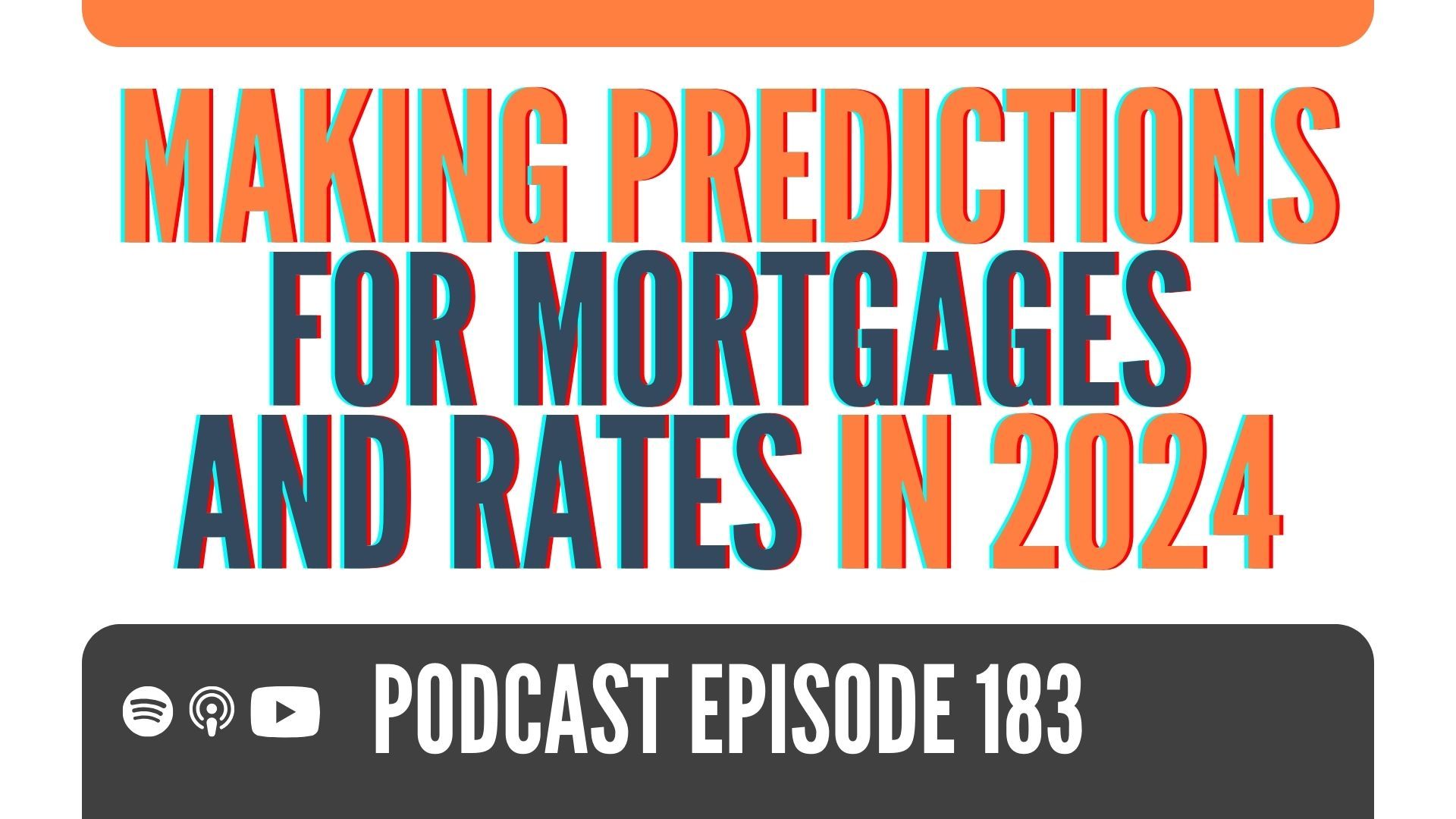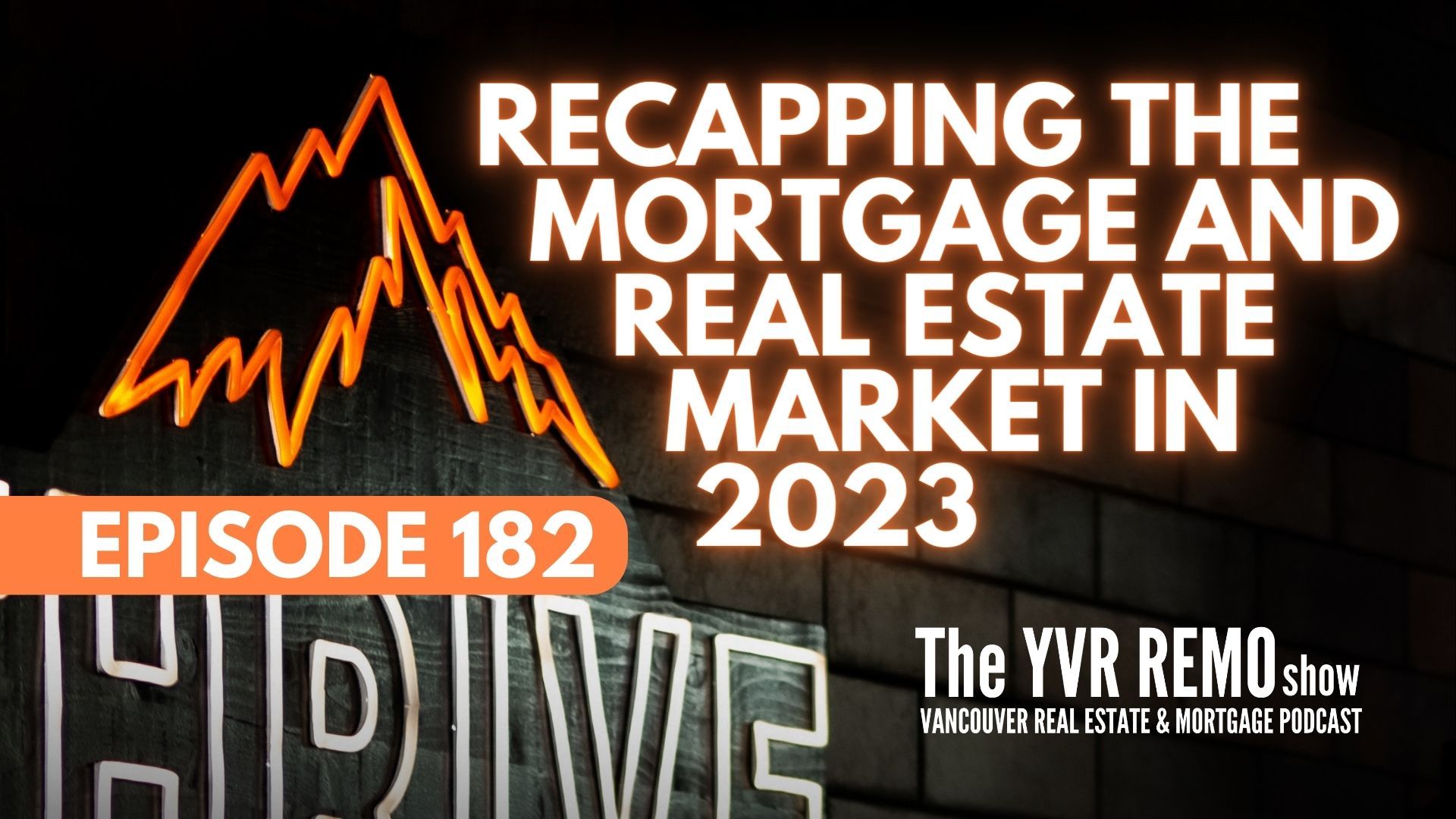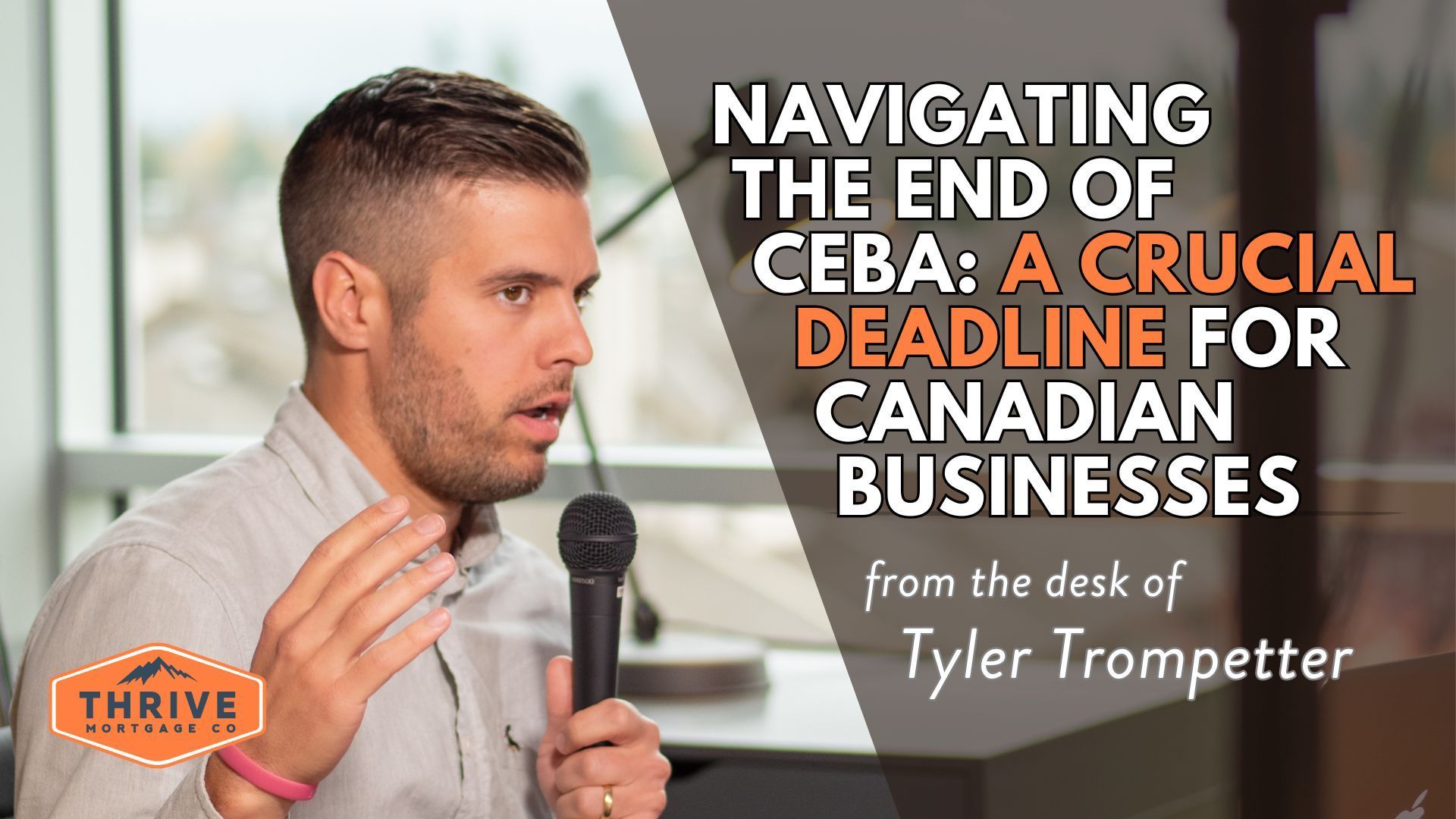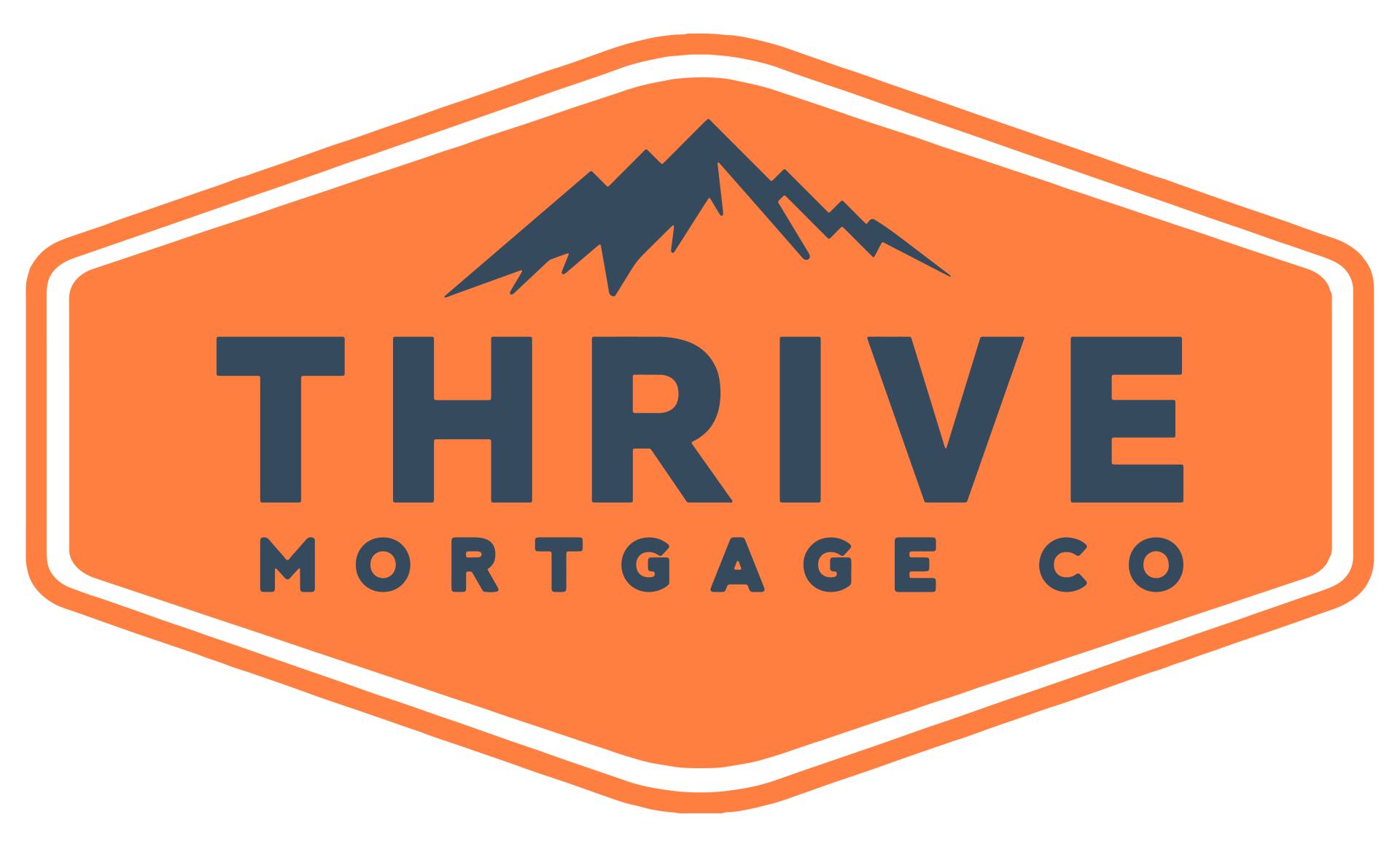10 Credit Facts You Need To Know | YVR Real Estate & Mortgage Show Episode 72 | Thrive Mortgage Co.
Everything You Need To Know Surrounding Credit When Buying A Home
What we're talking about today is the importance of having and obtaining credit. We broke it all down into 10 key facts or factors that you need to know about if you want to improve your credit score. We spend the entire episode helping you understand it better if you're looking to borrow money.
The topic of credit is always overlooked. We're never taught this stuff formally and we're put in a position where we have to figure it out on the fly. Some people talk about it as if it's the number one thing that a lender looks for and some people talk about it as if it doesn't even matter at all.
#1. WHAT ARE THE MAIN CREDIT AGENCIES?
Alex McFadyen
Let’s kick it off right into number one around credit agencies. There's a lot of different types of credit agencies in Canada. It's important to understand that the US credit agencies are different from the Canadian credit agencies. They have their own reporting methods and they also report to different agencies. What we want to talk about is that in Canada, there are only two key players as it pertains to your credit, TransUnion and Equifax. Those are the two companies that lenders, credit card, mortgage, and car loan companies use. They report your balance and how you're doing on your credit. Those two companies are what we're using on our day to day basis as it pertains to lending.
Dean Lawton
It's interesting, because there are two agencies, you would think they would operate the same and you would get relatively the same type of credit score from both. It's quite the opposite. We regularly see a lender pull a TransUnion opposed to an Equifax and find a car loan that wasn't on the Equifax report. Not every credit account that you have will report to one of these agencies and some pickup ones that others don't. It’s really important to know what both look like.
#2. YOU CAN OBTAIN A FREE CREDIT REPORT
Deryk Williamson
Moving on to number two. A lot of people think that the only way that you can get access to your credit score is by going through a mortgage broker or bank and having them pull your credit. You can get a free credit report on the TransUnion or Equifax website. They have subscription models as well, if you want to get an email update once a month. The free ones, where you don't pay, it's not going to show you a credit score. It will show you the guts of what is showing up on your credit bureau so that you can monitor it. You can monitor if there's maybe a credit card that's not yours or a missed payment that you thought was paid on time. Really important that people actually monitor their credit because I've personally seen clients go two years not knowing that they had $15 owing on a credit card. You can get access to a free credit report today.
Dean Lawton
It's quite common that clients will close up an account. They'll close down a credit card because they no longer want it or use it. However, it's still reporting as an active open account on their credit bureau. That may not be a detriment to your credit score but if you don't actually have that account, it may be a good idea to just make sure it actually does get closed and removed from your bureau.
Alex McFadyen
We recommend going directly to Equifax when getting your credit report. You can reach out to them from their website and get a copy of the report. This is not necessarily the score but a report which will summarize exactly what's on your account. You should be looking at this once a year. Other companies such as Credit Karma, don't actually get the reporting directly from the credit card companies. They get it more as an amalgamation from these other companies. TransUnion and Credit Karma, they actually have their own scale or sliding scales of what your beacon should be.
#3. WHAT’S AN AVERAGE CREDIT SCORE?
Alex McFadyen
A lot of people hear, I want to have a 900 or an 800. I hear all these different variations of that. What is the scale based on? I don't think I've ever seen a 300 score.
Deryk Williamson
I've seen low 400, but very rare.
Alex McFadyen
I've seen more 900 scores than 300 scores. It's actually easier to get a better credit score than to have a terrible credit score.
Dean Lawton
Stats say the average score is 650. I would say the average score we see is closer to 700. It's good to know that you should have at least a 680 if you want to obtain triple A interest rates from a lender that's going to give you a mortgage. 680 is where your minimum threshold should be. Anything below 680, you are going to be scrutinized and potentially declined.
Deryk Williamson
I talked to a lot of people, especially people that are in their 50s to 70s. They've been around for a long time and they've got equity in their home. Back in the day, if you had a good credit score and you had a reasonable level of income or affordability, you could typically get a mortgage. That's not how it works anymore. A lot of people come in and they have an 880 credit score and they think that they should get a better interest rate than the guy that has a 680 credit score. That is not the case. If you qualify based on income and credit, everybody is essentially offered the exact same rates and products. The main driver in a mortgage application nowadays is income. That's how you're going to see a higher qualification, simply based around that service. Having good credit is more of a requirement these days. For many different reasons, having the best possible credit score is awesome. I think everyone should continue to work at that but having a slightly better credit score than somebody else isn't going to push you further across the line.
Alex McFadyen
The 680 to 900 range is pretty key. There are a few lenders that will offer promotions and things of that nature that we see where the credit score has to be around 750, although that's not the norm. That doesn't limit you from having great options.
Below 680, just touching on that, there's a lot of concern that people can't get a mortgage. I see things online saying if your credit score is under 680, you can't get a mortgage.
What would you say to people like that?
Dean Lawton
It's not true. There are a lot of options for clients that have damaged credit such as going to alternative lenders. Those same lenders have programs specifically for damaged credit and credit repair programs. You go there for a one or two year term to repair your credit. The goal is to exit and move back to a bank when your credit score is back to where it should be. A lot of these lenders that focus on these credit repair programs are also averaging high credit scores. Most Canadians pay their bills and are pretty good with keeping a good credit score.
Just to answer your question, there are options, but we're not seeing many clients needing those options.
Alex McFadyen
If your credit score is between 60-680, there are still banks or monoline lender options available to you. In those scenarios, lenders just want to understand the story behind the why and what happened. Is it just because you don't have much credit? Can we add a co-applicant or something of that nature? There's this gray area right there where there's still options for you. It's when things get under the 600 range where it gets a little bit more interesting. You start to look at those alternate type lenders or credit repair programs, we do know some of the credit unions are a little bit more flexible with those programs. It's not all lost, there are options for you. This is a conversation where you just need to speak to a mortgage broker. If you walk into a bank, you're probably going to be turned down straight away.
Dean Lawton
If you have a poor credit score because of hardship, document that and have a good story. A lot of banks will make an exception for somebody that has a good story due to a hardship.
#4. WHAT IS MY CREDIT SCORE USED FOR APART FROM BORROWING MONEY?
Alex McFadyen
Credit scores are used for more than just borrowing money. We've got insurance agencies, cell phone providers, leasing companies. We talked about ourselves in real estate with landlords and employers.
The other interesting thing about this is credit from the perspective of getting money for a mortgage. If you apply and you're going to rent a place, or if you are a landlord and you're looking at a place, I do a credit poll and I'm going to look at that person's credit report. I can understand the specifics around, are they making their bill payments on time? What kind of bills do they pay? Are they paying on time? Do they have much credit? If they can't pay a cell phone bill, that's concerning to me.
Deryk Williamson
Going through life with damaged credit just makes everything more challenging. BC Hydro is an example. If you don't have a good credit score, you have to put up a deposit. This causes a financial strain when you're going into a new rental or property.
I think the purpose of this fact is just that credit is used for so many different reasons outside of buying a car or buying a home. I know there's a lot of people out there that aren't in a position to buy a property, and they sometimes let things go because they think it's never going to happen for them. There's so many different reasons such as finding your next rental or applying for a phone plan.
Alex McFadyen
With credit, it's crazy how quick you can improve it and get your credit score up.
#5. FACTORS THAT WILL IMPACT YOUR CREDIT
Alex McFadyen
There's five factors impacting credit score.
- Length of Credit History - How long have you had the credit?
- Are You Using The Credit? - It's great that you have this second credit card, but does it just sit there in your wallet and you never use it? Or do you only use the same credit? Card? It’s an important consideration to the amount based on how much you have available to you to the amount that you're borrowing.
- The Different Types of Credit You Hold - Is it for car loans? Or is it for credit cards?
- The Frequency Your Credit Is Used - How often do you use your credit? If you're looking to buy a car, just a heads up, you want to be smart about how you're doing it and who you authorize to pull your credit, that's a key.
- Payment History - How often are you paying your credit back?
Dean Lawton
When you look at those five factors, a lot of people would argue that payment history is the most important out of all five of those. Reason being is we've had clients that have 800 credit scores, but missed a mortgage payment. The bank is not cool with missing one mortgage payment, even in the course of a five year duration. They're going to ask questions and they're going to pick you apart. I would say payment history has got to be the most important and I'd start there.
Deryk Williamson
A credit report is like a report card. When a bank looks at that, it's because they want to read a history of how you have managed your credit. Accountability goes a long way.
The type of product is really important as well. You might have two phone plans in your name, but no other credit products. That's not going to go very far for a lender because it's a $100 payment per month. It doesn't give them the reasonability that they're looking for. I've seen clients that have had $500 credit cards for three years, they have a good credit score because they've never missed a payment. Again, you put yourself in a lender's shoes, they're going to be giving someone a $500,000 mortgage, but the only history that they have to look at is $1,000 worth of credit. I always suggest that if you're good with your credit, and if you're good with your money, always take the increases that the banks are offering. Get those limits up as high as possible, it's always good to have credit in case you need it. If you're not the best with your money and you overspend, it’s probably not a good idea. Keeping balances low is really important as well. So there's kind of a suggested Level, and it's the 50% range. If you have a $5,000 limit on a credit card or a line of credit, whatever it might be, you should try to keep your balance below 50% of the limit. You should never let your balance get over $2,500. If you're just making your interest only payment every single month, a lot of people think they're good. They're not over their limit and they're making their payments but what that's really telling the credit report is that you can’t afford to pay it off. Interest only payments are okay for a little bit if you don't have the cash but you should be paying down principal on every single payment that you make.
Dean Lawton
That blows most clients' minds when they find out that their credit score is a lot lower than they would have expected because they've never missed a payment ever in their life. All their credit cards are maxed out to the very top of the limit. Now their credit score has deteriorated over the course of six to eight months. This is why it’s very important to understand.
Alex McFadyen
Often with couples, I see one person who has the credit score in all of their name. I see this way too often. One person will have a credit score and the other person will have that joint credit card. This may be good for the purpose of financially reviewing your information, knowing where your money's going, but only one person is collecting the credit from that. It's one thing to have a score, it's another thing to have no utilization. It's important to remember both parties should also have their own cards or lines of credit.
Dean Lawton
It's very common that while somebody will get that credit card for their wife, it’s their credit card with the wife's name on it. It doesn't mean they're on account. When you're asking for that extra card, make sure you ask a clear question about making sure she's jointly liable for this product and add her to that.
#6. BECOME AWARE OF POSSIBLE ERRORS & OMISSIONS
Alex McFadyen
How many credit polls do we see errors on? Errors are on almost every single credit card. If you have not taken the time to pull your credit report once in the last year or two years, do not be surprised if the next time you pull it we see an open account that hasn't been closed. We may see something that's been reporting that you weren't even aware of. You have to look for these things because it's common.
Deryk Williamson
We see mortgages registered on people's credit bureaus that have been paid off five years ago when they sold their house. Whether it's the bank, lawyer, or credit report porting companies somewhere in the mix, it was not reported as closed and paid. If that comes up and you're in the midst of a mortgage application and you have five days to remove your financing subject, it's a panic. You're now trying to call Equifax, your bank, and you're calling the lawyer who tried to try to close the transaction. We also see credit products, it's rare, but I've seen credit products that actually don't belong to that person. It's a loan that actually is not theirs. They have to go and investigate with the bank. These are not joyful phone calls. You're dealing with customer service lines at banks and may experience wait times. Equifax and TransUnion are not pleasant to deal with. Staying on top of credit monitoring is so important.
Dean Lawton
Especially if you've recently immigrated to Canada and you have a different name or you've changed your name in some regard. I've seen this quite a bit with clients that maybe have a name from a different country and they've tried to go with more of a Canadian name. I’ve pulled credit in their Canadian name, which is on their ID, but they have no credit.
#7. WILL A MISS MORTGAGE PAYMENT RESULT IN PERMANENT CREDIT DAMAGE?
Alex McFadyen
Not paying a mortgage payment is unfortunately one of the worst things you can do for your credit but that does not mean it is permanent damage. There are things that you can do to continue to put yourself in a better financial situation to improve your credit. How many times have we seen a client who had a credit score around 530 hop up to a 680 over the course of six to 12 months in some cases? That's not that long of a time if you really think about it.
Deryk Williamson
I find a lot of people, when they're trying to re-establish credit, they stop using it. I've actually had people go through a bad situation where they have a bunch of missed payments and stop using credit. That's not how it works. No credit is just as bad as terrible credit because there's nothing for the bank to rely on. There's no history. If your credit score is below par or you don't have credit, oftentimes, they actually won't use your income. If we're really reliant on your income and an application, and that's not an option, you're not going to qualify for what you are pre-approved for.
Dean Lawton
Somebody mentioned it is like a report card, I look at it as a resume. If you're applying for a job that requires five years experience, but you haven't done that job for five years, you're not going to get the job. Look at your credit score as your resume and it has to be current.
#8. KEY TIPS WHEN CHECKING YOUR CREDIT SCORE
In the beginning of the episode around getting a free credit report. This comes down to actually checking your credit report.
Dean Lawton
I have a personal account that I pay, $9 a month through Equifax. I thought that was the most prudent agency to use because that's primarily what most lenders utilize is the Equifax Bureau. I monitor my credit pretty regularly and then I go to redo my mortgage. The score is different with the score that my personal Equifax account provides. It's very rare that it's even 30 points close to each other.
There's a lot of rumors out there as to why but the one that seems to make the most sense is the fact that when you're pulling your credit score for a mortgage, there is a heavy emphasis on utilization on payment history. The algorithm when we're looking at Equifax for the purpose of a mortgage is different than when you're just pulling it for your personal purpose. A bank is going to be far more concerned if you're likely to go into bankruptcy because all your credit accounts are maxed out. They're probably not going to want to give you a mortgage.
Deryk Williamson
The unfortunate side of that is, maybe somebody does have damaged credit and they go on their way. We set up a plan for six months and they're following along on Equifax and they come back to us thinking their credit score is 750. Sure enough, we pull it in, it's still 670, or whatever it might be. That part is really unfortunate, because you're not really going to know the proper score until you go through and get a hard pull from a mortgage broker. Nobody can really wrap their head around the why behind that, obviously, there's a reason. Get your correct score, you'd have to get a proper pull.
#9. BEST PRACTICES TO IMPROVE CREDIT
Alex McFadyen
The first and most important thing is to make sure to pay your balance in full as much as possible. If it's $50 or $500, paying your balance in full is key. That doesn't mean that you can't pay the minimum balance, paying the minimum balance is obviously much better because you're not missing your payment. If you can show that you could borrow and actually pay that back on a monthly basis, that will improve your credit score and that will put you in a much stronger position than the alternative of not paying it or not making the minimum payments.
Deryk Williamson
If you have a $5,000 credit limit, you don't want to be sitting at $4,900. You don't even want to be sitting at $4,000. You want to keep the balance below 50% of the limit at all times. When possible, I recommend that you increase your credit limit to a point where you don't need to utilize that full amount consistently. Just make sure you stay on top of where your balances are at most credit card companies.
Dean Lawton
A lot of people will get like a $20,000 credit card and be like this is way more than I need, I do not need any more products. That could be the case. Having a good mix of credit products is important too. Adding a line of credit as well just shows that you have more banks that are relying on you to pay back more than one product. Having more than one product is important. If you can throw a mix in there with a line of credit, a car loan, or some sort of an installment loan shows that lenders are willing to lend you money. It's a bad thing to rock that up and turn it into debt but having a lot of access to credit is a good thing.
#10. WILL MULTIPLE HARD PULLS DAMAGE MY CREDIT?
Alex McFadyen
The amount of time that you actually apply for credit or the frequency at which you do, there's not a specific number you can only apply. It's a combination of all these factors together. If you are shopping for a car, that's probably one of the times that you want to be the most careful because these guys will keep hitting your credit over and over again. You have to be very careful when you're working with the car dealerships. That's something where we've seen a lot of issues occur.
We hear people say, I checked my credit last year, is that going to be okay? What the lenders are looking for is if you check it five times in a month. When you go and shop for a mortgage on your own, going bank to bank, you're doing not only a credit check but you're doing a hard credit check at every single one. We've seen it and this is one of the first things we look for when we pre-approve or get someone's mortgage. We've seen people that have as much as seven or eight different pulls from different mortgage companies and banks. That is a huge red flag for a lender. That is the first question that they're going to ask us when they look at your credit, unless there's a bankruptcy or something of that nature. Remember, as a mortgage broker, we pull your credit one time to review and we can work with multiple agencies. Is it a bad thing for you to go out and get pre-approved and then have to pull your credit again? No, not a bad thing, but shopping around is a very bad thing and lenders actually look for that.
Dean Lawton
It's a human that's making the lending decision. There's an underwriter that's underwriting for the bank and looking at this credit. If you've pulled your credit 10 times in the last month, the underwriters thinking, what happened? Why would you possibly go and pull your credit score 10 times, something must be wrong.
Deryk Williamson
A lot of people come to us and they want a pre-approval but they don't want us to pull their credit because they think it's going to dramatically damage their credit score. This is not the case. That's not the way the system is built. You have to be able to access your credit to use it. We actually had Julie from Equifax on a podcast and she had mentioned that there's an algorithm that Equifax has. If they see a credit pull from Thrive Mortgage Co. today and then another four months later, and then one from Scotiabank, in that situation it's not going to lump that in as three credit pulls. It actually lumps them all into one because it can read and understand. Don't get caught up in worrying about your credit score dramatically dropping unless you've done what these guys just mentioned and gone to 10 banks first. If you're just going directly to one and you know you're working with one good mortgage company, it'll be fine.
Watch our episode with Julie Kuzmic from Equifax below.
Alex McFadyen
Does that mean that you can't go to TD Bank and then come to us? No, that is not the case. What we're suggesting here is scenarios where people are quite literally going from multiple banks before coming our way. We do lots of second opinions for people, that's not going to hurt you. It's more about abuse of the credit that they're looking for.
Your credit forms such a massive part of lending, it is not talked about. When you're listening to this stuff, make your key notes because
here's some really important points.
If you're talking to your bank, and they don't know how to explain this stuff to you, you have some serious issues. That's why people come to us. We're professionals and this is what we do for a living.
Have more questions? Get a hold of us!
We're on Instagram!
instagram.com/thrivemortgageco
Check us out on Facebook!
How to Reach US! 📲
Call 604.398.5575 or Email us!
More Questions or READY to get started!?
Just Ask US > Click Here to set up a call or EMAIL us
